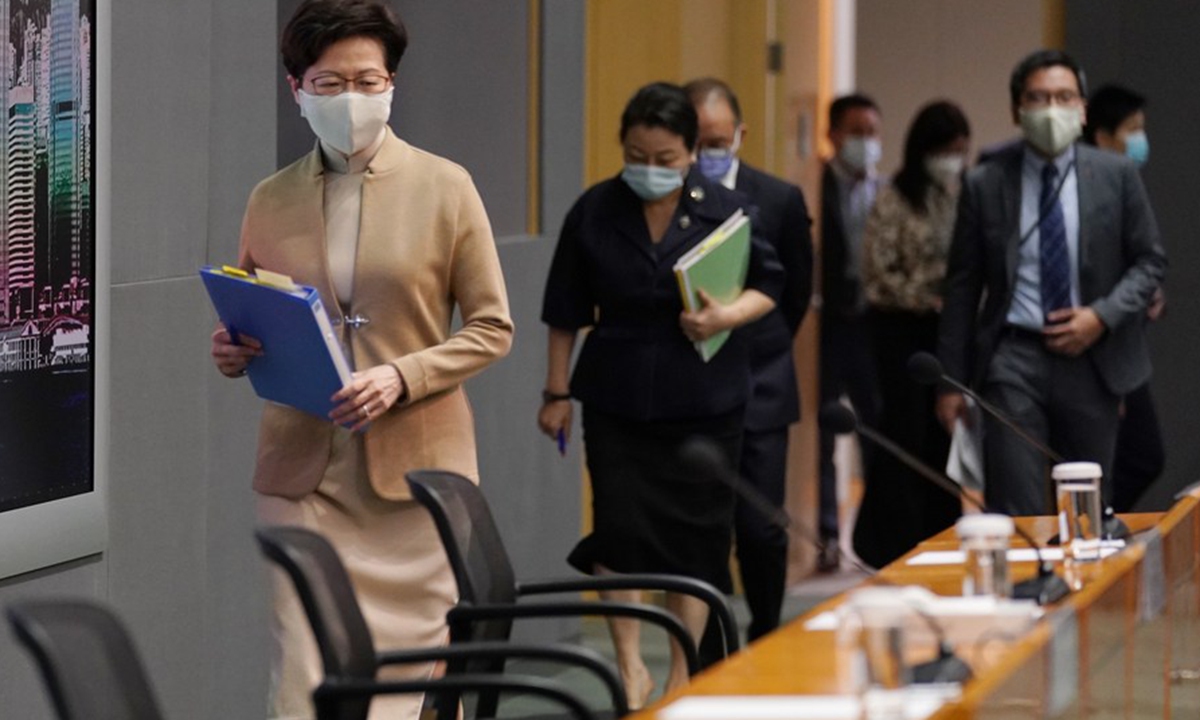Hong Kong must be governed by patriots

Chief Executive of the Hong Kong Special Administrative Region Carrie Lam (1st L) attends a press conference in Hong Kong, south China, Nov. 11, 2020. (Xinhua/Wang Shen)
The decision adopted by China's top legislature Wednesday on the qualification of local lawmakers in Hong Kong Special Administrative Region (HKSAR) has clarified the legal basis for "patriots governing Hong Kong."
The decision is targeted at activities endangering national security conducted by some Legislative Council (LegCo) members or candidates. It is just and legitimate, and will help end the turbulence in Hong Kong.
Certain Hong Kong opposition lawmakers have for some time been sabotaging the implementation of the "one country, two systems" principle in the HKSAR, advocating violence and practicing ugly "burn with us" tactics.
They have blatantly requested foreign sanctions on China and begged for foreign interference in Hong Kong affairs.
The four disqualified lawmakers -- Alvin Yeung, Dennis Kwok, Kwok Ka-ki and Kenneth Leung -- colluded with foreign forces, sided against Hong Kong and the motherland, and severely violated the ethical rules they should observe as lawmakers and the moral obligations they should heed as Chinese people.
LegCo members must be loyal to the motherland, uphold the Basic Law of the HKSAR and support the HKSAR government's law-based governance. These are not only legal requirements but also the political conditions that must be met to govern Hong Kong.
If Hong Kong is not governed by patriots as the mainstay, the implementation of the "one country, two systems" principle will be steered off course. Hong Kong's prosperity and stability, as well as the well-being of its people, will be threatened and jeopardized.
Hong Kong is China's Hong Kong. Being patriotic and loving Hong Kong concern China's sovereignty, security and development interests. Hong Kong's political power organs, including the LegCo, must be composed of patriots as the mainstay to ensure the "one country, two systems" practice is not bent or distorted.
